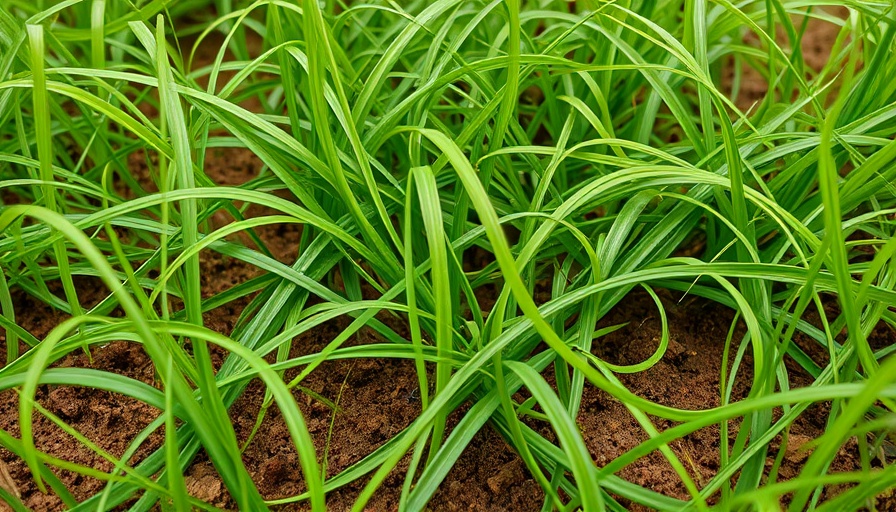
Listen Closely: What Your Weeds Are Whispering
For many homeowners, weeds are merely a nuisance, an ugly reminder of a garden that needs attention. But what if we told you that these plants are trying to convey essential information about the health of your soil? Understanding common weeds can unlock valuable insights about the condition of your garden, helping you implement the right strategies for nurturing a thriving outdoor space.
Decoding the Secrets of Ten Common Weeds
Each weed has its own story—its presence on your lawn can indicate specific soil conditions that require attention. Below, we uncover the underlying messages communicated by ten common weeds:
1. Plantain: The Medicinal Messenger
With its broad leaves, plantain may seem uninviting, but this weed serves as a signal that your soil might be low in fertility and overly acidic. Not only is it a versatile healing plant used in traditional medicine, but it also thrives in poorly drained and compacted soil. To combat plantains, aerate your soil and adjust your mowing height to encourage lush grass that can shade the plantain leaves.
2. Crabgrass: The Tenacious Opportunist
Crabgrass is a survivor—this weed can flourish in both nutrient-starved and thriving soils alike, making it a true opportunist. Its ability to emerge during dry spells or weeks of heavy rainfall means you need to pay attention to your watering regimen. Raising your mower height and using cornmeal in spring can help mitigate crabgrass’s invasive tendencies.
3. Ground Ivy: The Shade Specialist
Known for its creeping nature, ground ivy flourishes in shady and damp areas, indicating that your lawn may not be draining properly. This weed is aggressive and can take over an unhealthy lawn quickly. Keeping your lawn lush and well-maintained is essential to keeping this invader at bay. A higher mowing height and ensuring proper drainage can drastically help.
4. Annual Bluegrass: A Fertility Indicator
Upon noticing annual bluegrass, you'll realize that your soil is fertile but likely compacted and overwatered. If this weed is present, it's a strong indication that you need to aerate and regulate water usage in your garden. Raising your mower height can also prevent it from spreading uncontrollably.
5. Chickweed: A Cool-Weather Companion
Chickweed can signal more than just a harmless garden pest; its presence indicates moist, nutrient-rich soil, often thriving in landscapes where conditions are favorable. While it can serve as a nutritious addition to salads, frequent removal and careful management are essential to keep it under control.
How Understanding Weeds Can Transform Your Gardening Game
By interpreting what your weeds are saying, you empower yourself as a gardener. This knowledge enables you to make informed, strategic decisions that enhance the overall vitality of your planting areas. Gardening shouldn’t just be about aesthetics; it’s about creating a balanced ecosystem in your backyard.
Future-Proof Your Garden
As climate patterns shift and urban spaces evolve, understanding plant resilience becomes crucial. Weeds often thrive where traditional plants struggle. By learning to utilize this information, homeowners can cultivate gardens aligned with changing environmental conditions. Let’s look toward sustainable solutions that foster biodiversity while managing troublesome weeds.
Combating Weeds with Strategy: 4 Expert Techniques
Instead of simply reaching for herbicides, consider implementing a variety of strategic options for managing job. Here are four key techniques that can help you:
- Mulching: Covering soil to suppress weed growth and maintain moisture.
- Companion Planting: Using beneficial plants to protect and nurture your desired species.
- Regular Maintenance: Consistent mowing and nutrient management keep healthy flora dominant.
- Soil Testing: Identifying nutrient deficiencies allows for more targeted remediation efforts.
Empowerment Through Knowledge
In cultivating a beautiful yard, the weeds that appear can transform from foes to friends when you view them as signs illuminating the path to healthier soil management. Taking the time to understand the messages your weeds convey might just be the key to fostering a more vibrant outdoor environment.
If you're eager to grow your gardening prowess and transform your backyard, implement these insights and consider reaching out to local gardening experts for tailored advice. Learning from your weeds could lead to the most flourishing garden you've ever had!
 Add Row
Add Row  Add
Add 




Write A Comment